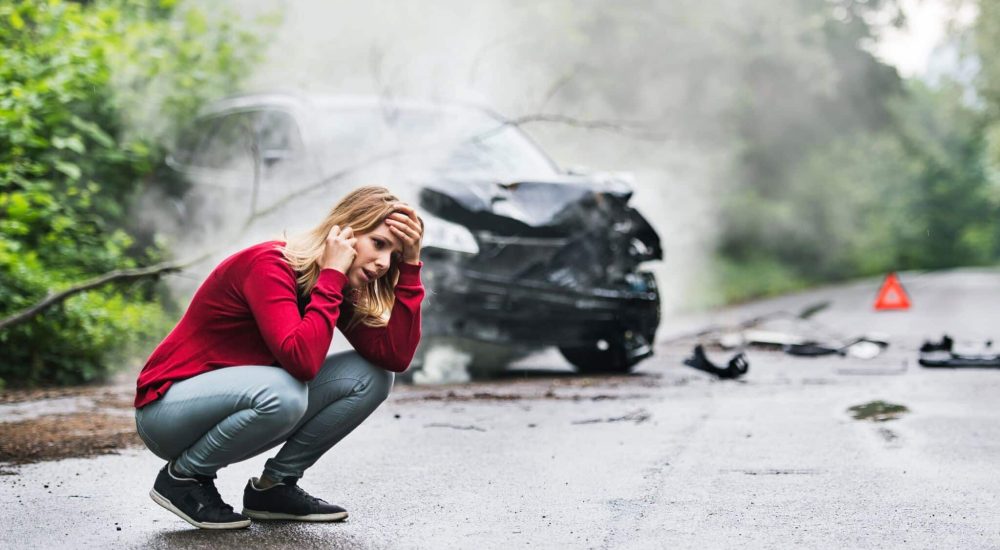|
|
Last Modified on May 25, 2025
Texas is one of many U.S. states that enforces a fault-based system for resolving motor vehicle accidents and subsequent claims for damages from those involved. The state requires every driver to purchase auto insurance that complies with the state’s minimum requirements for various types of coverage.
When a policyholder causes a vehicle accident with another driver, that other driver can go after the at-fault driver’s auto insurance policy, seeking compensation for damages they suffered.
This may seem like a straightforward system, but there are many pervasive misconceptions about how auto insurance works in Texas and what happens when someone has an accident in your car. Ultimately, any vehicle accident can generate a host of complex legal issues, and it’s not always easy to determine the best path through such disputes.
However, the right car accident attorney can provide the guidance you need to navigate any complex car accident case.
Understanding Auto Insurance in Texas
Texas has relatively demanding standards for auto insurance. The required minimum coverage for all Texas drivers includes:
- At least $30,000 in bodily injury liability per person injured in an accident caused by the policyholder. A policy must provide at least $60,000 in bodily injury liability for a single accident.
- At least $25,000 in property damage liability. This would apply to vehicle repair or replacement costs and any personal property damaged or destroyed in the accident.
It is strongly advised for drivers to purchase additional underinsured/uninsured motorist coverage, but it isn’t a requirement. If any driver without appropriate insurance coverage causes an accident in your vehicle, you could use this coverage to file a claim against your own policy for some immediate compensation.
Many drivers allow others to borrow their vehicles. While it’s common for family members to add one another to auto insurance policies, it’s important to remember that whenever someone borrows your car, they are borrowing your auto insurance, too. Your policy covers your vehicle, not you personally, so your auto insurance policy would apply if they caused an accident with another driver.
Insurance Coverage Details
Your car insurance policy includes several types of coverage that respond differently when drivers not listed on policy cause accidents. Liability coverage pays for damages you cause to others, while collision coverage policies handle your vehicle’s repairs.
Primary Coverage Types:
- Liability (bodily injury and property damage)
- Collision coverage
- Comprehensive coverage options
- Uninsured/underinsured motorist protection
Permissive use car insurance kicks in when you give someone explicit permission to drive your car. But here’s the catch – coverage can become complicated if the borrowing driver has their own insurance too (which creates a secondary coverage situation that insurance adjusters love to dispute).
The National Highway Traffic Safety Administration reports that understanding your policy’s specific language about guest drivers prevents costly surprises after accidents occur.
Texas Laws and Vehicle Ownership
Texas law operates under a “follow the car” principle for car insurance coverage. This means when someone else drives your vehicle and gets in a car accident, your insurance policy becomes the primary coverage source.
Under Texas car accident laws, all drivers must maintain minimum liability coverage. The Texas Department of Transportation mandates these financial responsibility laws in Texas to ensure accident victims receive compensation.
Legal liability in car accidents can get tricky. Even if you weren’t behind the wheel, you might still bear responsibility as the vehicle owner. The liability limits required by law represent minimums – but they’re often insufficient for serious accidents.
Most people don’t realize this reality.
What happens if someone borrows your car without permission?
Liability implications shift dramatically based on whether you gave permission for someone to use your vehicle. When determining liability in accidents, courts examine the relationship between owner and driver, the circumstances of vehicle use, and whether any borrowed car accident liability applies.
The at-fault driver typically bears primary responsibility for damages, but you as the vehicle owner can become the responsible party if your liability coverage limits prove inadequate. This scenario becomes particularly problematic when dealing with unauthorized driver accident implications.
Key Liability Factors:
- Driver’s permission status (authorized vs. unauthorized)
- At-fault determination
- Available liability coverage limits
- Uninsured motorist coverage necessity
Texas follows a modified comparative negligence rule, meaning multiple parties can share fault percentages. But if someone takes your car without permission and causes significant damage, you might face personal financial exposure beyond your insurance limits.
Impact on Insurance Premiums and Legal Procedures
Here’s what nobody wants to hear: accidents affect insurance premiums after accident regardless of who was driving your car. Rate increases following a claim typically range from 20-40% at renewal, though this varies significantly between insurance companies.
Denied insurance claims happen more frequently than most people expect. Common reasons include policy exclusions, coverage disputes, or questions about driver permission. Resolving insurance disputes often requires persistence and detailed documentation of the lending arrangement.
Court proceedings for car accidents become necessary when insurance settlements can’t resolve all damages. The Federal Trade Commission provides guidance on insurance company practices and your rights during the claims process.
Resolving a Car Accident in Texas
When another driver has caused an accident while borrowing your car, the injured driver will have the right to file a claim against your auto insurance policy. You will not face liability for a personal injury suit if the injured driver cannot fully recover their losses through insurance. The at-fault driver would assume liability for these damages. However, you could still face severe consequences under the terms of your insurance policy.
First, it’s important to check whether you are permitted to let others drive your car under the terms of your policy. You could lose your coverage or have your premium rate increased significantly if someone borrowed your car and caused an accident. Additionally, while your insurance policy will pay for the injured driver’s damages, you may not have the coverage to pay for your own vehicle repairs.
In this situation, you may have grounds for a civil suit against the driver who you allowed to borrow your vehicle, but it can be very difficult to succeed with this type of case after you had permitted them to use your vehicle, effectively assuming the risk they might cause an accident.
Ultimately, resolving any car accident can be difficult, especially when the vehicle’s owner and the policyholder of an auto insurance policy in question was not driving when the accident happened.
Working with an experienced Texas attorney is the best strategy for reaching the best results possible in this challenging situation.
Car Accident in Texas FAQs
Who Is Liable in a Car Accident in Texas, the Owner of the Vehicle or the Driver?
This is the most common question following any car accident in which the owner of the vehicle was not driving when the accident occurred. In almost all cases, the vehicle owner’s insurance policy follows the vehicle, not the driver, so when a driver lets someone else borrow their vehicle, they are letting them borrow their insurance policy, too. It is possible, however, for a vehicle owner to face partial fault for an accident when they weren’t driving but failed to correct a maintenance issue with their vehicle or warn the borrowing driver of a safety issue with the car.
Can a Car Owner Be Sued for Another Driver’s Accident in Texas?
In most cases, a driver will absorb liability for an accident they cause, but if they are using another person’s car, then the owner’s auto insurance policy would apply to the victim’s recovery efforts. However, if the victim were to pursue further legal action, they must direct their case to the driver, not the vehicle owner, to recover their remaining losses.
What Happens If a Driver on My Insurance Causes an Accident?
If you have another person listed as a covered driver on your auto insurance policy, such as a teenage child who recently obtained their driver’s license, your auto insurance policy would apply if they caused an accident with another driver.
How Much Compensation Can I Receive for a Car Accident That Wasn’t My Fault?
If another driver caused a recent accident with you, they are responsible for all resulting damages. You can file a claim against their auto insurance policy to seek full recovery from all economic losses you suffered, and you can also claim compensation for any pain and suffering caused by the defendant.
Should I Hire an Attorney After Someone Else Crashed My Car?
When someone else has borrowed your vehicle and caused an accident, they may try to blame you for the accident, saying the accident happened due to some problem with your vehicle you hadn’t addressed. The at-fault driver is responsible for the damages they cause to others, and while your auto insurance may apply to the case, the driver is responsible for any remaining losses.
Finding the right attorney can make an incredible difference in your recovery efforts after a car accident in Texas. The sooner you speak with an attorney, the more time they have to work on your case and the more likely you are to avoid liability for damages you didn’t cause.
Contact Stevenson & Murray today and schedule your consultation with a vehicle accident attorney you can trust.






